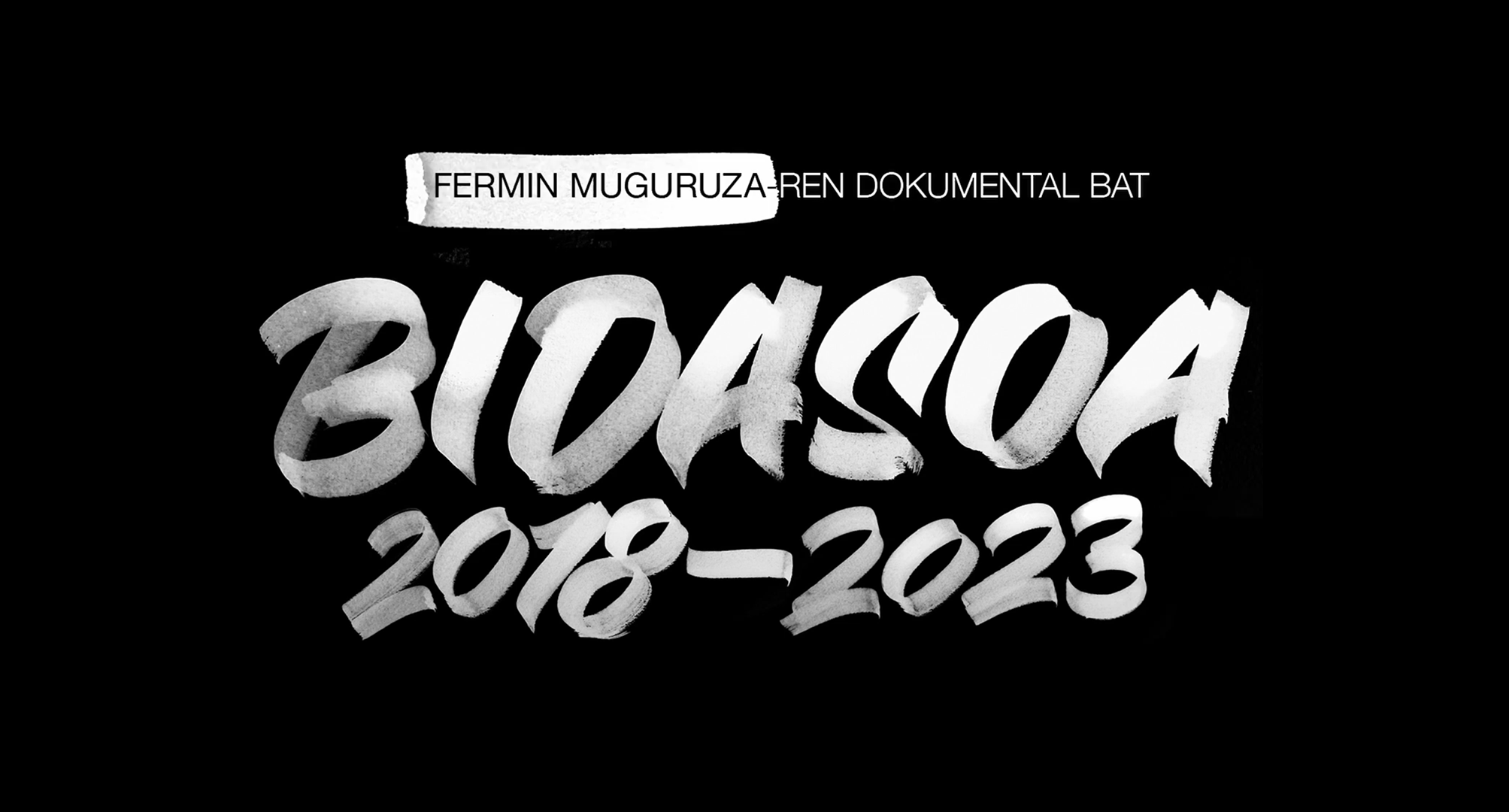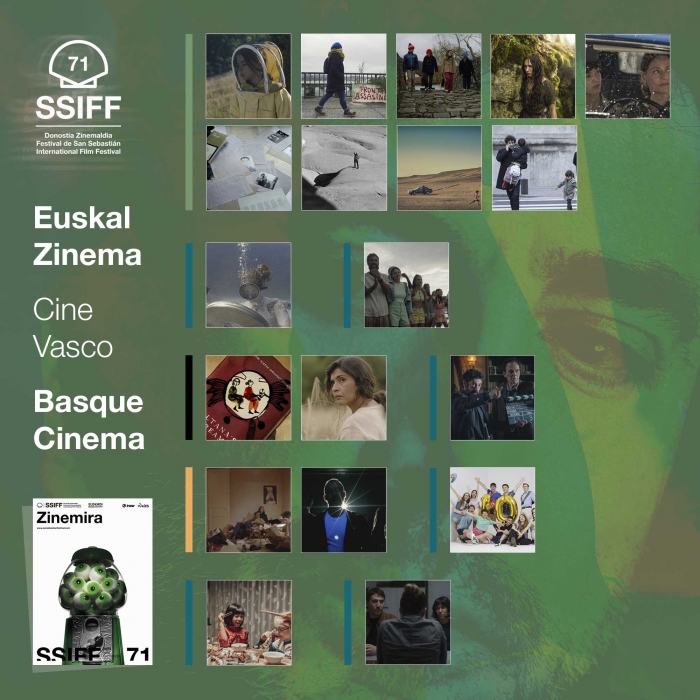
SSIFF ➝
19 Basque films make up the Basque participation in the 71st edition of the San Sebastian Festival
Actor Paco Sagarzazu, an indispensable figure on Basque screens and stages, will receive the Zinemira Award in recognition of his career
A total of 19 titles –15 features, one medium-length film, one short and two series– make up the Basque participation in the 71st edition of the San Sebastian Festival, distributed between the Official Selection, Donostia Award Special Screenings, Zabaltegi-Tabakalera, Made in Spain, Zinemira, Velodrome and the Basque Cinema, EiTB and RTVE Galas.
Zinemira, the section specifically dedicated to Basque cinema, is organised by the San Sebastian Festival and the Basque Government Department of Culture. It is sponsored by Irizar and EiTB and has the collaboration of the Basque Film Archive, the EPE/APV and IBAIA producers associations, and Zineuskadi. This year, Urbil also joins as a collaborator. At this edition, Zinemira comes with nine fictions and non-fictions. Three of these, to have their world premiere at the Festival, will compete for the Irizar Basque Film Award together with another two works present in other Festival sections. A total of five productions will therefore compete for the prize money of 20,000 euros going to the film’s producer or producers.
Irizar Award contenders
The dramatic odyssey of migrants on their way to Europe is at the centre of Bidasoa 2018-2023, the latest documentary work from Fermin Muguruza (Irun, 1963). The filmmaker and musician from Gipuzkoa has shown his work in several of the Festival sections: Zabaltegi (Zuloak, 2012), Zinemira (Black is beltza, 2018) and the Velodrome (Black is beltza II: Ainhoa, 2022).
Another Zinemira regular is the moviemaker Josu Martinez (Bilbao, 1986), who, after showing titles including Sagarren denbora. 25 urte deserritik itzultzen (2010) and Paperezko hegoak (Paper Wings, 2021), returns to the section twofold: Bizkarsoro contains five true stories taking place in an imaginary town, while Mirande, film baterako zirriborroa, the Zinemira closing film, approaches the life and work of the writer Jon Mirande.
Competing for the Irizar Basque Film Award alongside the above-mentioned three titles are another two films included in other sections: the animated film El sueño de la sultana / Sultana’s Dream, feature debut from Isabel Herguera (Donostia, 1961) programmed in the Official Selection, and Arnasa betean, emakume zinegileak / A Deep Breath, Women Filmmakers, by Bertha Gaztelumendi (Irun, 1962) and Rosa Zufía (Tudela, 1958). In this film, programmed for Tuesday 26 September in the Victoria Eugenia Theatre as part of the Basque Cinema Gala, the two directors bring an immersion in cinema by Basque women.
[…]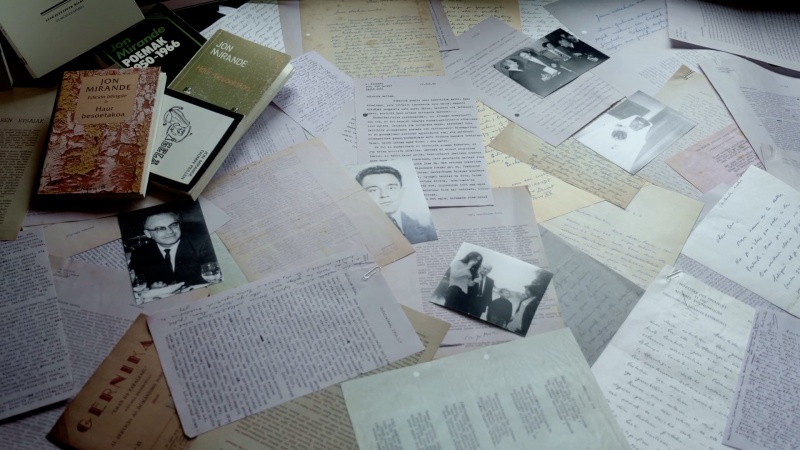
MIRANDE, FILM BAT EGITEKO ZIRRIBORROA
JOSU MARTINEZ (SPAIN)Country(ies) of production: Spain – France
Competes for the Irizar Basque Film Award
CLOSING NIGHT FILM
« In the mid 20th century Jon Mirande demonstrated with his prose that the Basque language was capable of producing cultured, universal literature. Everybody recognises its importance. But he is still a taboo subject. De Mirande is said to have been a racist. A paedophile. Nazi. Misogynist. Immoral. Every time his name is mentioned, fiery controversies break out. We don’t know what to do with him. I want to make a film about Mirande. But I don’t know how. Perhaps it would be more interesting to give him the floor ». (Josu Martinez)
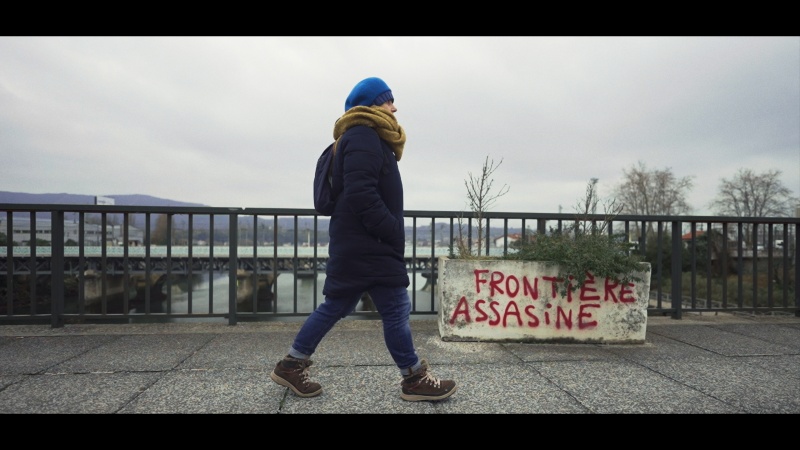
FERMIN MUGURUZA (SPAIN)Country(ies) of production: Spain
Competes for the Irizar Basque Film Award
Police control and the closure of certain crossings on the Bidasoa river, natural border of the Pyrenées-Atlantiques Department, imposed by France in summer 2018 to prevent the entrance of immigrants on their way to other European countries, caused 10 deaths in a single year. Seven people died from April 2021, drowned in the waters of the River Bidasoa between Irun and Hendaia, while another three lost their lives in October 2021, hit by a train in Ziburu. This documentary, as well as putting a voice and face to several of the activists who work on either side of the river, as representatives of the Harrera Sarea (Reception Network) and Bidasoa Etorkinekin (The Bidasoa with Migrants) associations, also recalls those who lost their lives, giving them a name and an age, following their journey and their dreams, discovering the history and the people behind the cold figures of the deceased, giving the tragedy a more human aspect.
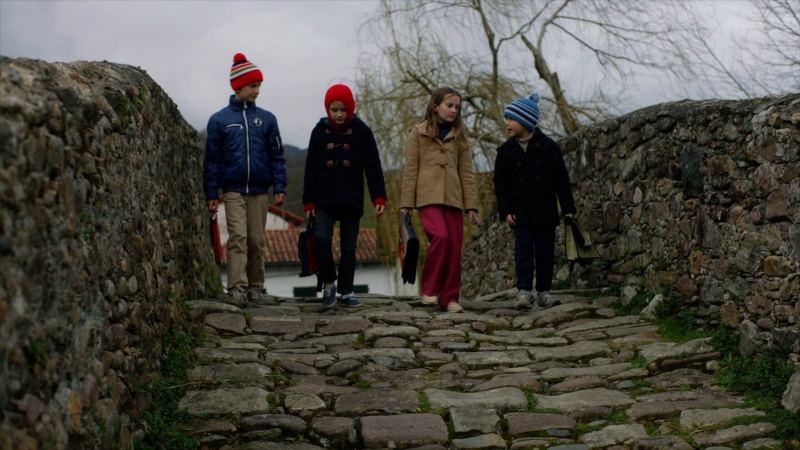
JOSU MARTINEZ (SPAIN)Country(ies) of production: France – Spain
Competes for the Irizar Basque Film Award
In a non-existent town, five true stories based on oral testimonials and texts by writers take place between 1914 and 1982. Through them, we see the social changes experienced throughout the 20th century by a small town in the Northern Basque Country, the deep-rootedness and approximation of a language, and the struggle for survival.
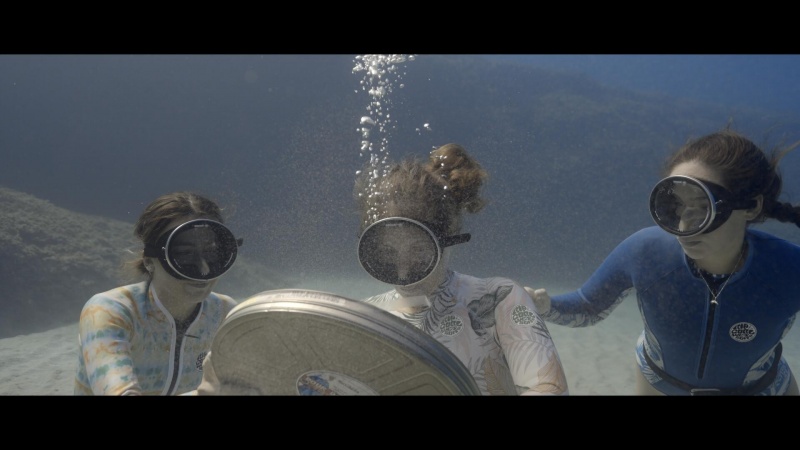
ARNASA BETEAN, EMAKUME ZINEGILEAK / A DEEP BREATH, WOMEN FILMMAKERS
BERTHA GAZTELUMENDI (SPAIN), ROSA ZUFÍA (SPAIN)Country(ies) of production: Spain
Competes for the Irizar Basque Film Award
Euskal Zinema eta ETB Gala
At last we are starting to hear the voice of women in the cinema. We celebrate it with this documentary on the Basque women moviemakers of yesterday and today, giving a global overview of the subject. Three female divers guide us through the topic of their films, their points of view, their dreams, their efforts to get somewhere, their contribution to the cinema and to society. We discover the female pioneers, and are surprised by the work of older women filmmakers or of the younger ones who are now enjoying success at festivals.
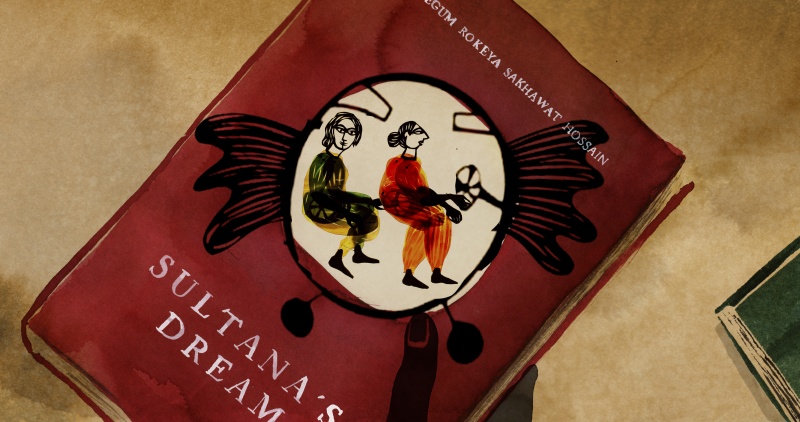
EL SUEÑO DE LA SULTANA / SULTANA’S DREAM
ISABEL HERGUERA (SPAIN)Country(ies) of production: Spain – Germany
Competes for the Irizar Basque Film Award
Taking her inspiration from a feminist sci-fi short story written in Bengal in 1905, Inés sets out on a voyage of discovery around India in search of Ladyland, the Utopian land of women.

